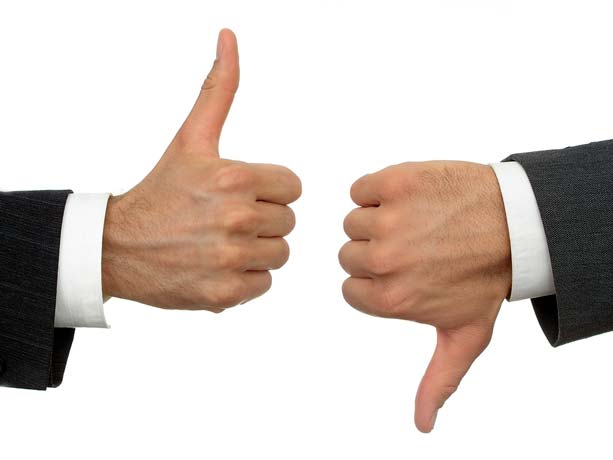
The eight top Republican presidential candidates gathered for the fourth debate of the 2016 campaign Tuesday night in Milwaukee. It was a more understated affair than the last GOP debate sponsored by CNBC but still managed to yield some bests and worsts.
Here are my winners and losers from the night that was.
Winners
• Marco Rubio: Rubio's line about welders making more money than philosophy majors will be quoted all over the place in the post-debate analysis. (And, no, it wasn't totally accurate.) Rubio knocked it out of the park when debating military spending and the right role for America in the world with Rand Paul. He got a meatball of a question when asked by the moderators about Hillary Clinton's resume as compared to his own; he, unsurprisingly, answered it well and easily. Time and time again, he oozed knowledge while appearing entirely relaxed. One nit to pick with Rubio: He can -- and did at times Tuesday night -- come across as slightly-too rehearsed, the student reciting things back to the teacher from memory but without actually understanding what any of it means.
• Ted Cruz: For the second straight debate, the Texas Senator shone under the bright lights. His line about the tax code having more words than the Bible was a good and memorable one. His repeated denunciations of Washington's "crony" culture will leave a lot of Republican heads nodding in agreement. Cruz proved Tuesday night that of the "outsider" candidates he is the one best equipped to carry their message going forward.
• Ben Carson: In the first three debates, I've watched in wonder as Carson's numbers kept moving up after what I perceived to be nearly-non-existent performances. But, Carson -- from his first answer on Tuesday night -- was more energetic (that's a pretty low bar given Carson's past performances) and more dialed-in than I had seen him. He was helped by a moderator question on his past exaggerations/inaccuracies regarding his life story that would give the term "softball" a bad name. And by the fact that none of his rivals seemed interested in taking the fight to him on the issue of the inconsistencies of his recounting of the past. Carson was, as usual, very shaky on foreign policy and wasn't much better on regulatory reform. But, he did more than enough to keep himself at or near the top of the GOP field.
• Carly Fiorina: Like Cruz and Rubio, Fiorina proved something Tuesday night that we already knew: She's an able debater. She inserted herself into a variety of discussions -- foreign policy, taxes -- where she left a positive mark. It also helped that the audience in the room in Milwaukee seemed very much on her side. I still think Fiorina, like Rubio, can come across as too rote at times. * Rand Paul: The Kentucky Senator (finally) found ways to get his voice heard in a debate. The problem for him is that he's almost certainly too far down in polling -- and in the money chase -- for it to matter much. Still, Paul found a platform to voice his unique views on foreign and fiscal policy and, at this stage of his candidacy, that amounts to a win.
Losers
• Donald Trump: Trump, as he has in each of the first four debates, stood center stage in Milwaukee on Tuesday night. But for the two-plus hours that the debate ran, Trump felt ancillary to the conversation. When he did get time to speak, he simply repeated his now-familiar lines -- we don't win anymore, I have a great company etc. -- and little else. His answers on foreign policy were not good. His random attack on Fiorina -- "why does she keep interrupting everybody?" -- earned him boos from the crowd (and helped her). Trump just didn't seem all that interested in being there. It likely won't affect his poll numbers since nothing seems to. But that doesn't change the fact he was off his game.
• John Kasich: The Ohio governor came out with a strategy to install himself right in the center of the debate. To do that, he interrupted, cajoled and pouted his way through the debate. His positions on immigration and on Wall Street banks won't win him any support within the GOP base (he got booed for his Wall Street answer). But, it wasn't really about policy. Kasich seemed peevish, short-tempered and anything but presidential.
• Jeb Bush: Look, the former Florida governor wasn't bad in this debate. In fact, he was far better than the lifeless showing he put in last month. But, he wasn't good enough. Jeb's first answer -- pledging to repeal all of Obama's executive orders -- was forceful and quite good. But, as the debate wore on, Bush repeatedly missed chances to jump into conversations -- a long back and forth involving multiple candidates over taxes jumps to mind -- and, when he did speak, he was somewhat halting and awkward. The Bush people readily acknowledge that debating is not his strong suit. And I readily acknowledge that being a good debater doesn't guarantee victory. But, Bush just isn't comfortable on the debate stage -- and it shows.
• Anecdotes: Virtually every candidate took a question about broad fiscal policy and turned it into a heartwarming/heart-wrenching tale of "Jim and Aileen Jones from random city in random state." I know candidates and their staffs believe these anecdotes bolster the idea that they are out meeting regular people and not sitting in the halls of Washington -- wherever those are -- opining on stuff. But, the anecdotes come across more often than not as trite and cliched rather than revealing and powerful. Let's just stop doing it! OK? Good. It's a deal.
• Debate format: The Fox Business moderators went out of their way to make clear that they, unlike the unmentioned but ever-present CNBC moderators, would be sticking to substantive economic issues in the debate. Then they went out of their way to praise themselves for doing so. Fine. But, the debate was largely lifeless throughout and the lack of candidate exchanges -- whether because of the rules of the debate or a simple unwillingness to engage -- meant that many of the answers offered were straight from oft-repeated talking points. I don't think that serves the voters' interests -- at all.
Previously:
• 11/02/15: Jeb Bush says he still doesn't get why his terrible debate performance matters so much
• 10/29/15: Winners and losers from the third Republican presidential debate
• 10/22/15: Paul Ryan might be saving his party. But at what cost?
• 10/20/15: Six things we know Joe Biden is thinking
• 10/19/15: Who had the worst week in Washington? Lincoln Chafee
• 10/14/15: Winners and losers from the first Dem presidential debate
Comment by clicking here.


 Contact The Editor
Contact The Editor
 Articles By This Author
Articles By This Author
